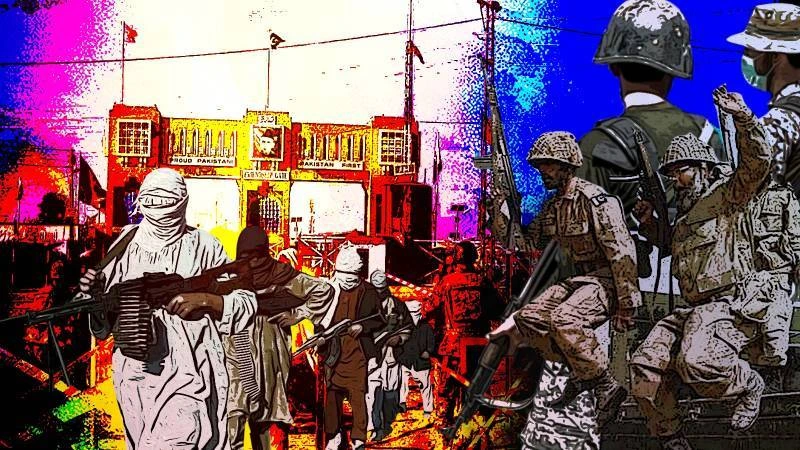September 11 attacks changed the dynamics of international relations. The magnanimity of attacks forced states for adopting assertive stance related to counter terrorism. Pakistan as the front-line state in war against terrorism is still facing the brunt of terrorism crisis. The porous border with Afghanistan poses threats in term of infiltration, militant movement, and smuggling whereas the low-toned relations of Pakistan and India threatens strategic stability of the region. Over the years, Pakistan has developed its strategic and military capabilities keeping in wake this threat spectrum. Besides facing economic, civic and humanitarian loss, Pakistan finds itself in an arrangement of regional crisis. Regardless of challenges, Pakistan’s counter-terrorism approach demonstrates a blend of military response that have yielded significant successes.
As a key non–NATO ally in the war against terrorism, Pakistan worked on eradication and dismantling of Al-Qaeda. In its role as a partner, Pakistan provided support to the West in their it’s against terrorism. This partnership with the West left Pakistan in a difficult situation. The export of terrorism/terrorist organizations into Pakistan, the Afghan refugee crisis and rise of extremist ideologies were the ramifications of Pakistan’s partnership with the West. In 2021, the withdrawal of U.S. and the West marked a ‘pictorial’ end of war against terrorism in the region but for Pakistan things remain unsettled.
After the harried withdrawal and the fall of Kabul, Pakistan re-tailored its relationship with Afghanistan. Besides extending diplomatic support to interim Afghan government (IAG), Pakistan asserted that West must consider de-freezing of Afghan assets. Since the fall of Kabul, Pakistan had been consistently advocating development of a bilateral counter-terrorism mechanism that prevents cross-border infiltration of terrorists. Despite multiple dialogues and bilateral visits, Pakistan faces terrorism committed by Fitna Al Khawarij (FAK); majority of whom use Afghan land for strategizing attacks inside Pakistan.
From 2021 and onwards, Pakistan has noticed sophistication in attacks committed by FAK. These terrorists now use the leftover weapons and military hardware of the U.S. and Western forces. Although, Pakistan Armed forces react to all kind of terrorism incidents with greater efficacy but the presence of unguarded sophisticated weapons pose serious concerns for regional security. A few reports also indicate that among FAK terrorists, there are individuals who were released by IAG following the takeover in 2021. Right after taking the power, IAG released hundreds of TTP prisoners that prominently included Maulvi Faqir Mohammad, the then deputy Emir of TTP.
On the eastern front, episodes such as Uri, Pathankot and Pahalgam threatens the stability paradigm of South Asia. Indian authorities cite these episodes to highlight their concerns about counter-terrorism. Pakistan however maintains that such episodes require thorough investigation. Despite Pakistan’s careful handling of the unfolding events, the situation culminated into war. India resorted to air strikes that were met with diligence. The downing of Rafale was the outcome of the dogfight that could have been averted provided timely interference of the U.S.
On one side, Pakistan’s handling of the Pahalgam episode, expresses its efforts of counter terrorism in the region whereas, on the other side, Pakistan has effectively weakened terrorist infrastructure by maintaining sustained pressure on groups like TTP, ISKP and Al-Qaeda. A similar approach has been adopted toward terrorist factions such as Harkat-ul-Jihad al-Islami (HuJI) and Lashkar-e-Jhangvi. In compliance with United Nations regulations, Pakistan banned these terrorist organizations and worked toward their complete dismemberment. Through intelligence based raids and covert operations, Pakistan either killed or arrested leadership of these groups. Presently, there exists no credible evidence of these groups presence in Pakistan.
Parallel to these efforts, Pakistan’s has taken radical measures to curb threats posed by terrorist groups like ISKP. In March 2025, Pakistan arrested Sharifullah– a top commander of ISIS in an intelligence based operation and handed him to U.S. This arrest was followed by the arrest of Abu Yasir– a Turk national and key ISIS operative. The back-to-back arrests of important terrorists demonstrates Pakistan’s commitment to counter terrorism and the effectiveness of Pakistan’s intelligence network. U.S Centcom Chief General Michael Kurilla’s remarks during hearing of the House Armed Services Committee is a high-level admission of Pakistan’s counter terrorism abilities. His remarks posit that Pakistan, through its unwavering commitment against terrorism, has taken a frontline role in global security efforts, aggressively dismantling terrorist networks and promoting international cooperation.
In recent years, Pakistan has broadened its counter terrorism mechanics. Alongside initiating actions in kinetic domain, Pakistan worked on dismantling financial structures that aid the spread of terrorism. In light of the Financial Action Task Force’s (FATF) action plan, Pakistan curbed money laundering and institutionalized financial management in the form of establishing Financial Monitoring Unit (FMU). Besides this, Pakistan introduced legislative reforms and regulatory mechanisms all of which aim on limiting space for terrorist factions. Also, Pakistan has been working on restricting violent content online, countering hate speech through rigorous reforms. As an outcome of these efforts, Pakistan has developed an all-inclusive counter-terrorism mechanism that now guards, Pakistan’s internal security.







